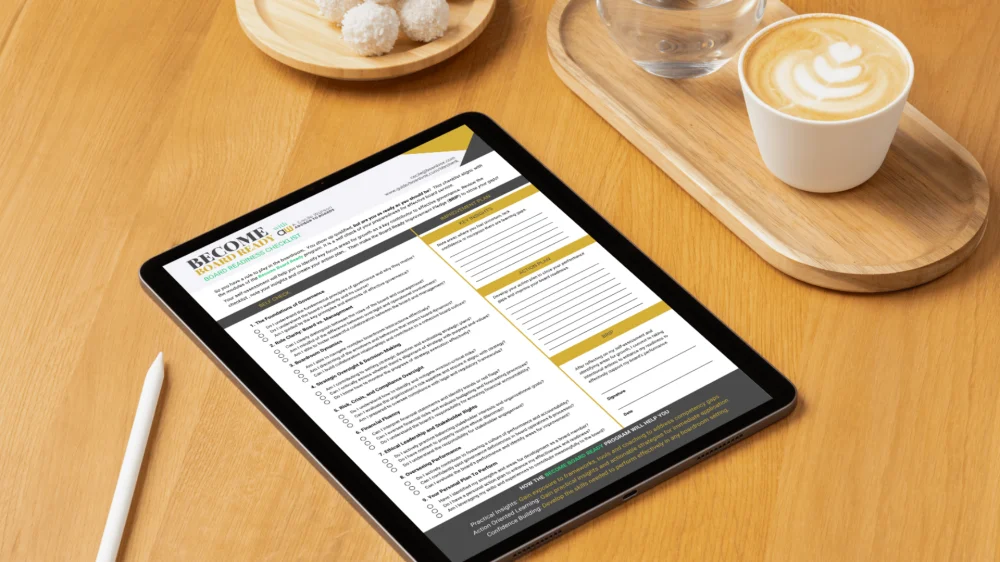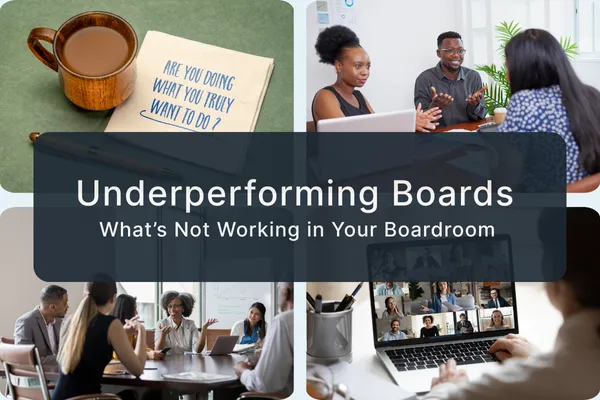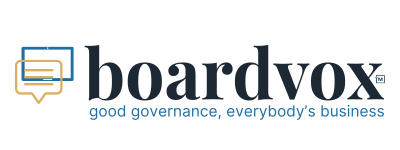Board and Leadership Development for Caribbean Professionals
Global Standards, Local Relevance
How we help
We are the Voice, Expression, and Tone of Good Governance.
Helping organizations across the Caribbean and beyond realize their full potential by educating, informing, and supporting boards, directors, and C‑Suite leaders. Through practical training, strategic tools, and governance advisory services, we enable leaders to create enduring value—for today and the future.
How we help
We are the Voice, Tone and Expression of Good Governance
helping organizations to realize their full potential
by educating, informing, and supporting boards, directors, and c-suite leaders
with the training, tools and services to create the best value for today and the future.

Board, Director, and C-Suite
Training
We equip directors and C-suite leaders to excel in the boardroom through immersive coaching, tailored workshops, and flexible online programs—strengthening governance, decision-making, and leadership effectiveness across Caribbean organizations.

Board Performance
Tools
We deliver comprehensive board evaluations, improvement plans, and digital governance tools designed to assess, strengthen, and sustain board performance in alignment with global best practices.

Board Operating
Support Services
We help boards operate more effectively with retreat facilitation, policy templates, and administrative tools that streamline governance processes and keep boards focused on strategic impact.
Let's reimagine the future of board development.
We believe every director holds the key to unlocking extraordinary boardroom potential—and that the power to drive sustainable economic growth rests with people like you, right there in the boardroom. In an era where reputational risks are at an all-time high, board service has never mattered more. It demands integrity, courage, and vision from the best hearts and minds.
That’s why we’re redefining how boards grow stronger—by making governance easier for smarter boards.
BoardVOX helps directors embrace their profound responsibility, lead with independence and ethics, and champion the principles of good governance that build trust and long-term value.
Coming Again Soon!
Join The Waitlist for Become Board Ready
This checklist is your entry point to the
Become Board Ready Program ...a guide designed to empower directors and aspiring board members to excel in their governance roles.
Download the checklist and get waitlisted for Cohort II of Become Board Ready
Elevate Your Governance Expertise: Master the key principles that drive effective board leadership.
Strengthen Board Dynamics: Foster alignment, trust, and a shared understanding in the boardroom.
Confidently Navigate Your Role: Clarify your responsibilities and deliver value with confidence.
Enhance Strategic Oversight: Stay focused on purpose, accountability, and long-term success.

This checklist is aligned with the proven modules of our Become Board Ready program, so you can start assessing and addressing your readiness immediately.
Complete the form and you'll receive the Board Readiness Checklist directly in your mailbox.
Privacy Disclaimer:
We respect your privacy. The information you provide will only be used to deliver your checklist and occasional updates about governance insights and resources. We will never spam you, sell, or share your information with third parties.
RED FLAGS IN THE BOARDROOM CHECKLIST
Add it to your Board Engagement Toolkit to have a handy guide empowering you to:
Identify potential governance risks early
Be vigilant and avoid corporate governance failures.
Uphold the highest standards of transparency and ethics.



Underperforming Boards: What’s Not Working in Your Boardroom
In PwC’s 2025 Annual Corporate Directors Survey, directors offered a moment of candor that’s too significant to ignore: 51% believe that at least one of their fellow board members should be replaced due to underperformance. This wasn’t external pressure or media scrutiny. It was internal. It was the outcome of directors reflecting on their own peers.
This kind of self-assessment is really important. It signals a growing recognition within boardrooms that not everyone around the table is contributing at the level required. But identifying the problem is only the first step. The more important question is when will boards be willing to respond to what they see.
The PwC survey shares valuable insights to help organizations better understand what's not working in their boardrooms. In this article, we're taking a closer look at the role played by execution as well as five governance fault lines that were surfaced in the survey.
Execution: The Villain of Boardroom Performance
Today’s boards already understand that their role is broader than oversight. Governance frameworks such as ISO 37000 and the OECD Principles are clear that boards are expected to create value, steward purpose, and ensure their own effectiveness. These are not new ideas. But the gap persists and, not surprisingly, execution is the villain.
Boards that keep turning up for board meetings just to consider what's on the agenda are missing the point of their existence. We can all agree that that's the business of boards. However, the work of boards must elevated beyond doing the work normally found on the agenda. This era of governance requires working on how governance is practiced as well.
The PwC findings confirms that many boards already see the cracks forming. Yet despite growing awareness, too many boards hesitate to act. This pattern isn’t new.
In Complacency: The Silent Risk in the Boardroom, we explored how performance erodes quietly when issues are left unaddressed. It’s not one major oversight that weakens governance, but a series of small decisions to look away.
Similarly, our article entitled The Long Tail of Bad Governance showed how early signs, if ignored, can compound into lasting reputational and strategic damage.
Boards don’t need more awareness. What they need is a clear-eyed look at the patterns of behaviour that are undermining their effectiveness. The PwC survey doesn’t just highlight individual concerns, it reveals recurring points of failure across governance practice. These are the areas where boards are stalling, and where renewed discipline is most needed.
The point here is that addressing how boards execute their function is not negotiable, it’s the imperative required to yield better performance. The following governance fault lines identified in the PwC survey should prove to be an insightful perspective to help navigate the demands for improved execution in the boardroom.
Five Governance Fault Lines Boards Shouldn’t Ignore
There are five persistent fault lines that emerge from the patterns revealed in the PwC 2025 survey. These challenges, if left unaddressed, quietly erode oversight, diminish credibility, and limit the board’s capacity to steward value and trust.
The five fault lines gleaned from how boards are actually responding, are:
Failure to Act On Governance Gaps
Tolerating Director Underperformance
Board Evaluations Without Follow-Through
Stagnant Board Composition
Director Disengagement

These are not abstract governance concerns. They are grounded in observable board behaviours, and are backed by directors’ own admissions in the survey. What follows is a closer examination of each fault line, exploring not only what boards are facing but also why I believe meaningful change remains elusive.
1. Failure to Act on Governance Gaps
How boards are acting:
PwC’s survey found that 51% of directors say at least one of their peers should be replaced. Yet only 20% of boards acted on evaluation results, and just 19% say their board is effective at refreshing itself.
Boards are not unaware of what’s going wrong. Directors increasingly acknowledge underperformance, but boards do not appear to be following through with meaningful action, even after evaluations.
This finding signals not a lack of insight, but a failure to initiate change.
ISO 37000 guides us to appreciate that governance must enable adaptive improvement. When boards fail to act on recognized gaps, whether related to skills, contribution, or board dynamics, they compromise performance over time. In doing so, they risk falling short of their Duty of Care.
2. Tolerating Director Underperformance
How boards are acting:
73% of directors say it is difficult to have frank conversations about a fellow director’s underperformance. Many boards tolerate low engagement due to discomfort or cultural norms that prioritize harmony over accountability.
Directors often know when a peer isn’t adding value. But instead of addressing it, the default is to avoid the crucial conversations. This avoidance isn’t always due to indifference, it’s often rooted in uncertainty. Most directors don’t operate in board environments where peer-to-peer accountability is modeled or supported. And without formal authority over one another, many feel unskilled in navigating performance conversations across a flat governance table.
Boards often prize cohesion over correction. But as noted in Complacency: The Silent Risk in the Boardroom, collegiality can easily become the cloak under which underperformance hides. The reluctance to speak up may feel respectful, but it slowly erodes standards. When no one acts, even when issues are clear, it lowers the expectation of meaningful contribution and opens the door to complacency.
Governance leadership demands more than patience. It requires a shift in culture to one where performance is not assumed but reinforced. Chairs and governance committees must be empowered to intervene early. And all directors must be supported to build confidence in giving feedback, not just receiving it. Upholding such standards is not about judgment. It’s about trust earned and maintained through mutual accountability.
3. Board Evaluation Without Follow-Through
How boards are acting:
While evaluations are widely used, only 20% of boards report that the process has led to changes in composition or board practices. Directors acknowledge that evaluations often lack consequence.
Board evaluations have become more of the norm in recent years. Howerver too few boards are effectively using them to drive actionable change.
Directors report that assessments are often treated as procedural. They find that there's limited linkage between evaluation results and individual director development, role repositioning, or renewal outcomes.
As examined in The Long Tail of Bad Governance, such a disconnect weakens credibility and creates blind spots over time. Evaluations must be designed to support real improvement. Without consequence, even the most thorough assessment becomes a missed opportunity for course correction.
4. Stagnant Board Composition
How boards are acting:
Only 33% of directors believe their board has the right expertise to support the company’s strategic direction. However board renewal decisions are still frequently based on age or term limits, not on strategic relevance.
While directors acknowledge misalignment between board skills and strategy, board renewal remains slow and often reactive.
Frameworks like ISO 37000 and the UK Corporate Governance Code recommend that board composition be guided by purpose, performance needs, and the organization’s future risk profile. Boards that treat composition as a dynamic issue that is revisited regularly, are more likely to evolve in step with the organization.
5. Director Disengagement
How boards are acting:
Directors report that:
40% say peers are regularly unprepared
32% note passive participation
23% cite narrow perspectives
Yet, few boards are enforcing expectations around preparation or contribution.
These insights are not inferring that there's director misconduct; it’s however pointing fingers at where boards are tolerating suboptimal impact. When boards accept passivity, the overall quality of oversight suffers. As expectations around board performance rise, so too must clarity around what contribution is expected to look like. Engagement must no longer be characterized as optional for directors, because it really is a governance imperative.
In Closing: Are Boards Measuring What They're Expecting?
The 2025 PwC survey confirms what many directors and board chairs have silently observed: not every director is pulling their weight in the boardroom. The awareness is there, and many directors are voicing concerns about underperformance among their peers. Even if you've never heard it said about you, you shouldn't rest comfortably thinking that you're not in the cross hairs for this one.
But if boards already see the problem, why isn’t it being addressed?
Lack of insight clearly isn’t the issue. The real challenge is the failure to translate that insight into institutional action. Directors are speaking frankly in the PwC surveys, yet similar concerns don’t seem to surface in formal board evaluations. This may be because the right questions aren’t being asked, or maybe the evaluation process lacks independence, objectivity, or the authority to drive change.
The bottom line is this: governance maturity isn’t measured by how often a board evaluates its performance. It’s measured by whether those evaluations lead to renewed performance commitments, rebalanced composition, and strengthened accountability.
So the question boards must confront is this: What are you really measuring? What is your evaluation surfacing …and what is it sidestepping?
Boards that fail to connect reflection with reform risk drifting toward irrelevance or governance failure. Because when contribution isn’t measured clearly, it can’t be improved. And when director performance isn’t acted on, governance loses both its discipline and its direction.
Thank you for reading.
I said: I wanted to give you an outcome that was comprehensive, informed by the standards, and could be used as a framework to guide this and future preparations.
She responded: That's the approach I would expect from you and I advocated for the engagement on that basis.
Bold Leadership. Ethical Governance. Meaningful Impact. That's the charge. Carry it Forward!
Enjoyed this article? Subscribe to never miss an issue.
Drop me a note and share your best board leadership stories.
Stay tuned for more perspectives on bold leadership, ethical governance and meaningful impact insights. And if you haven't already, be sure to subscribe so you never miss a post. Together, we're set to build better boards and build boards better by reshaping the landscape of boardroom leadership, one director at a time.
🌐💼 #BecomeBoardReady #strategy #BoardDevelopment #CorporateGovernance #GoodGovernance #BoldLeadership #EthicalGovernance #BoardPerformance #boardvox 🤝🔍
Know someone who might be interested in this blog? Please be sure to share it with them.
Also be sure to follow our boardVOX WhatsApp channel here. It is Especially for directors, c-suite leaders, corporate secretaries and all interested in good governance.
YES, YES ...I GET IT
This is exactly what I need right now.
I'm seeking a network of professionals who understand the challenges of the boardroom.
I want to elevate my leadership and have a real impact in the boardroom.
Continuous learning is crucial in our field, and I'm eager to stay ahead.
I believe in the power of good governance to shape the future of business and communities.
If this sounds like you, then DIVE RIGHT IN!
Join Our Movement As
A Partner In Good Governance.
Helping you avoid SHOULD'VE and COULD'VE ... to done right, every time.

